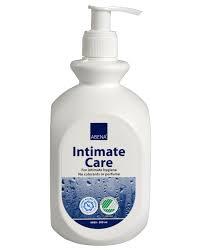Introduction
When it comes to personal hygiene, women often pay great attention to skincare, haircare, and overall grooming. Yet, one of the most delicate aspects of health—intimate cares—is sometimes overlooked due to cultural taboos or lack of awareness. The intimate area requires special attention because it is more sensitive than other parts of the body. Proper intimate care not only supports comfort and freshness but also plays a crucial role in preventing infections, irritation, and long-term health issues.
This article explores the importance of intimate care, common challenges women face, and best practices to ensure wellness and confidence.
What is Intimate Care?
Intimate care refers to the hygiene and health practices specifically designed for the female genital area. Unlike general skincare, intimate care requires products and routines that respect the natural pH balance and microbiome of this sensitive zone.
Using regular soaps or harsh cleansers may cause dryness, irritation, or disrupt the protective bacteria, making the body more vulnerable to infections. Therefore, dedicated intimate care products such as gentle washes, wipes, and soothing gels are recommended for maintaining balance and cleanliness.
Why Intimate Care Matters
1. Maintaining pH Balance
The vaginal area has a natural acidic pH of around 3.5–4.5. This acidity is vital in protecting against harmful bacteria and infections. Ordinary soaps tend to be alkaline, which can disrupt this natural defense. Intimate washes and gels are specifically formulated to maintain the correct pH balance.
2. Preventing Infections
Neglecting proper intimate care or using unsuitable products can lead to urinary tract infections (UTIs), yeast infections, or bacterial vaginosis. Gentle, pH-balanced products help reduce these risks.
3. Enhancing Comfort and Confidence
Discomfort such as itching, dryness, or unpleasant odor can affect a woman’s confidence. Regular use of proper intimate care products ensures freshness, comfort, and peace of mind.
4. Addressing Life Stages
From puberty to menopause, women experience hormonal changes that affect intimate health. During menstruation, pregnancy, or menopause, intimate care becomes even more essential in maintaining hygiene and preventing irritation.
Common Intimate Care Challenges
Menstrual Hygiene
During menstruation, the risk of odor, irritation, and infections increases due to the constant use of sanitary pads or tampons. Proper cleaning with an intimate wash, along with frequent changes of sanitary products, is key.
Post-Workout Discomfort
Sweat and tight activewear often cause chafing or irritation. Using gentle cleansers and breathable clothing helps avoid discomfort after exercise.
Pregnancy and Postpartum Care
Hormonal changes during pregnancy and after childbirth often cause increased sensitivity, dryness, or discharge. Specialized intimate care products can ease discomfort during these phases.
Menopausal Concerns
As estrogen levels drop during menopause, vaginal dryness becomes common. Intimate gels and moisturizers can help relieve this condition and restore comfort.
Best Practices for Intimate Care
-
Choose the Right Products
Use products designed specifically for intimate hygiene. Avoid scented soaps, talcum powders, or alcohol-based products. -
Wear Breathable Clothing
Cotton underwear helps the skin breathe and prevents moisture buildup, reducing the risk of infections. -
Maintain Daily Hygiene
Washing the intimate area once or twice daily with a mild cleanser is sufficient. Overwashing may strip away natural protective bacteria. -
Practice Good Menstrual Care
Change sanitary pads or tampons every 4–6 hours and wash with gentle products during periods. -
Stay Hydrated and Eat Well
A balanced diet and adequate hydration support the body’s natural defenses and healthy vaginal flora. -
Consult a Gynecologist
Regular check-ups are essential for preventive care and early detection of issues.
The Role of Intimate Care Products
Today, a wide range of intimate cares products are available in the market, such as:
-
Intimate Washes: Gentle cleansers to maintain pH balance and cleanliness.
-
Intimate Wipes: Convenient for use while traveling or during busy schedules.
-
Soothing Gels: Designed to reduce dryness, irritation, or discomfort.
-
Specialized Products: Solutions for pregnancy, postpartum care, or menopause-related dryness.
One example is Livfem Gel, a product formulated to provide daily freshness while protecting natural balance. Such products are tailored to women’s unique needs, unlike regular soaps or body washes.
Breaking the Taboos Around Intimate Care
In many cultures, discussing intimate care is considered uncomfortable or even inappropriate. This silence often prevents women from learning how to properly care for themselves. Breaking these taboos is essential to empower women with the knowledge they need for better health. Educational campaigns, open conversations, and healthcare awareness can play a key role in normalizing discussions around intimate wellness.
Conclusion
Intimate care is not a luxury—it is a necessity for women’s health and confidence. Proper practices, combined with safe, pH-balanced products, protect against infections, reduce discomfort, and ensure daily freshness. From adolescence to menopause, women face unique challenges that require tailored hygiene routines.
By adopting healthy habits, choosing the right products, and encouraging open conversations, women can take control of their intimate wellness. In a modern lifestyle where self-care is gaining importance, intimate care deserves a central place in every woman’s routine.
For more article clichere



